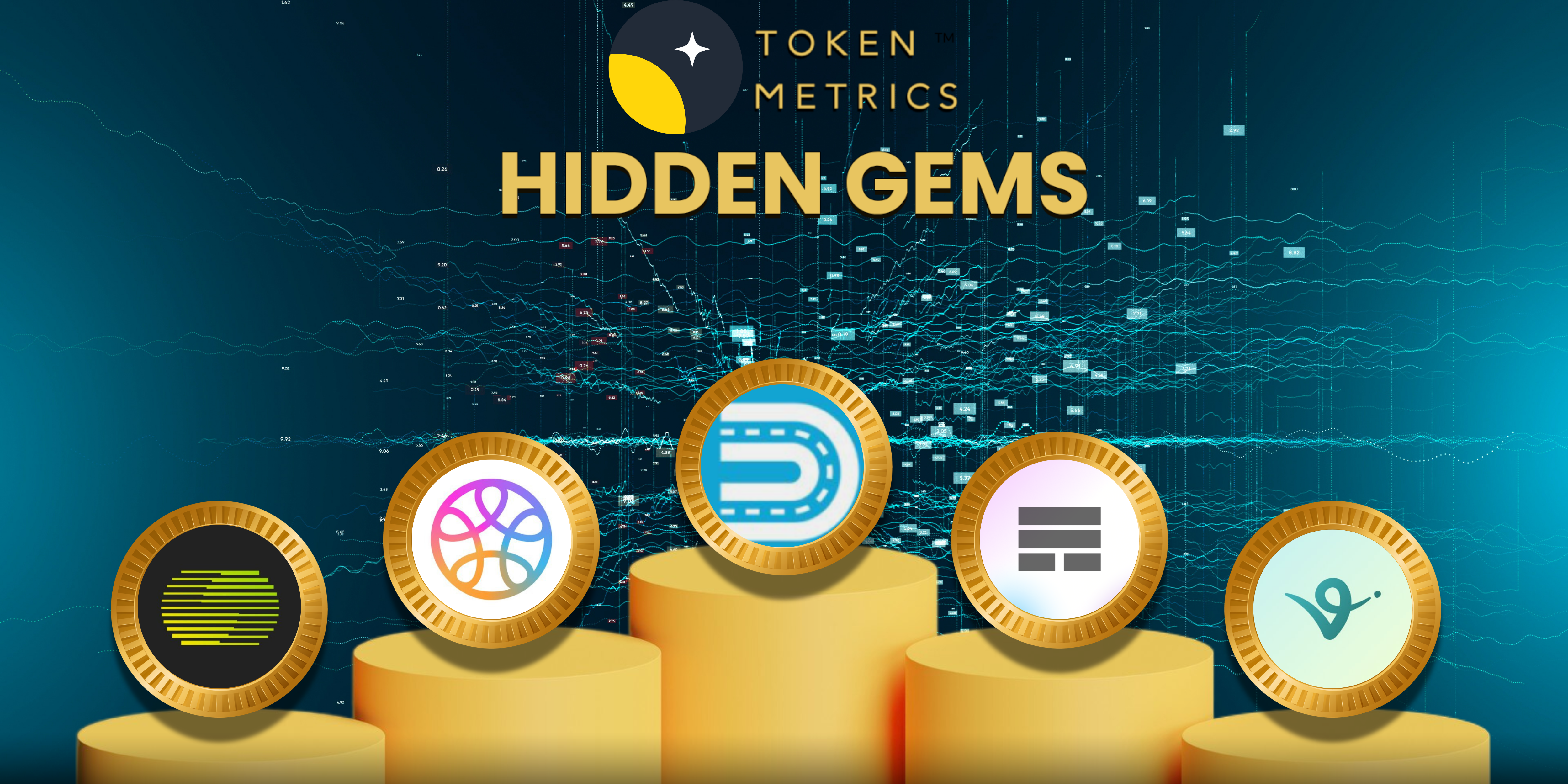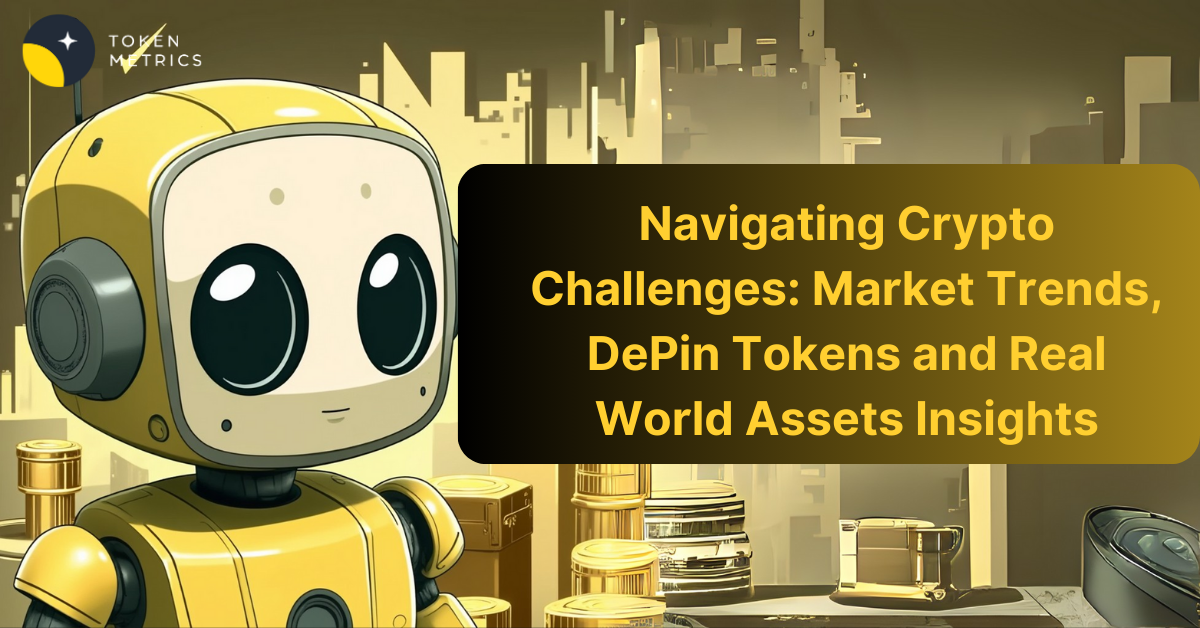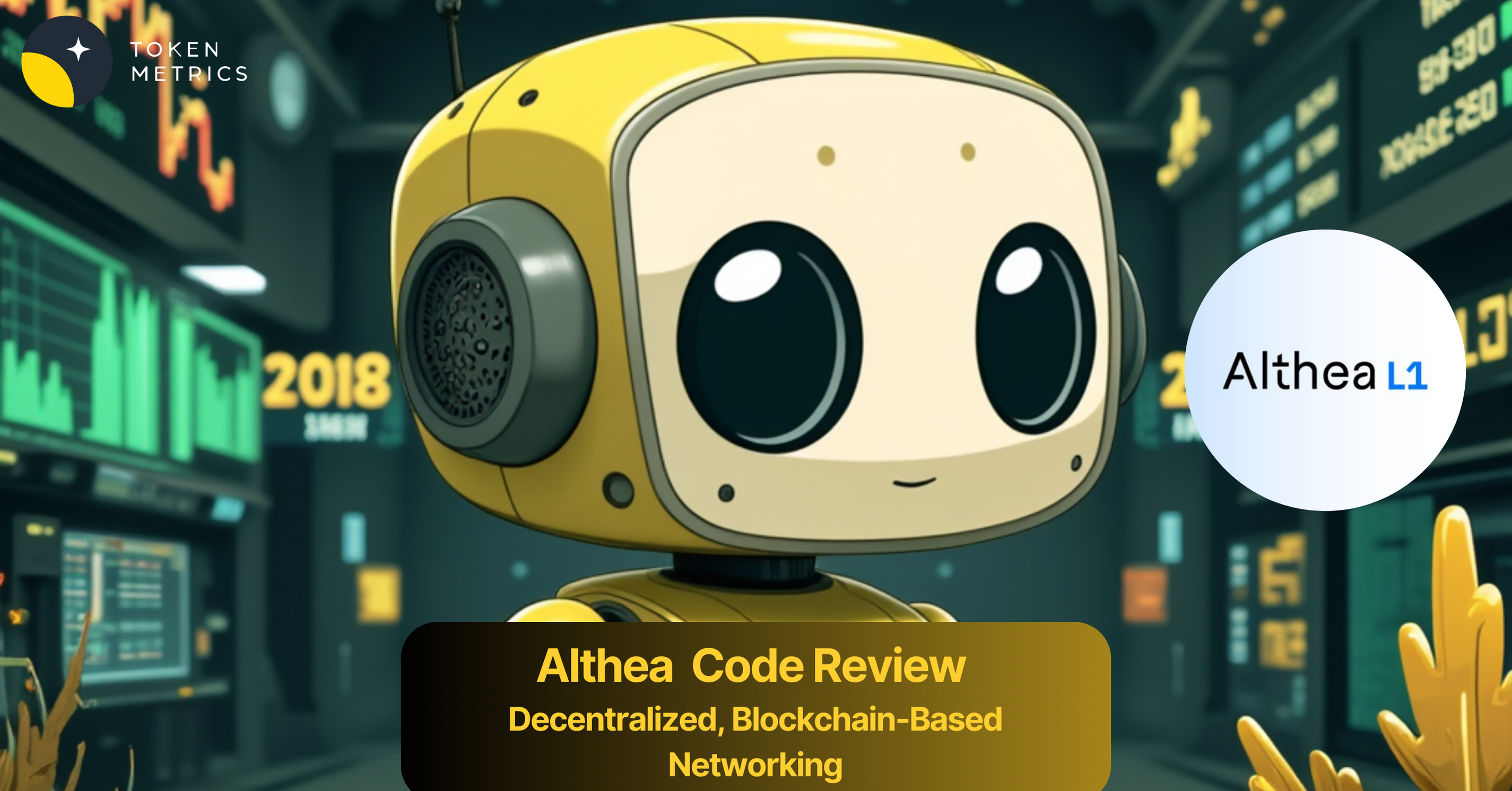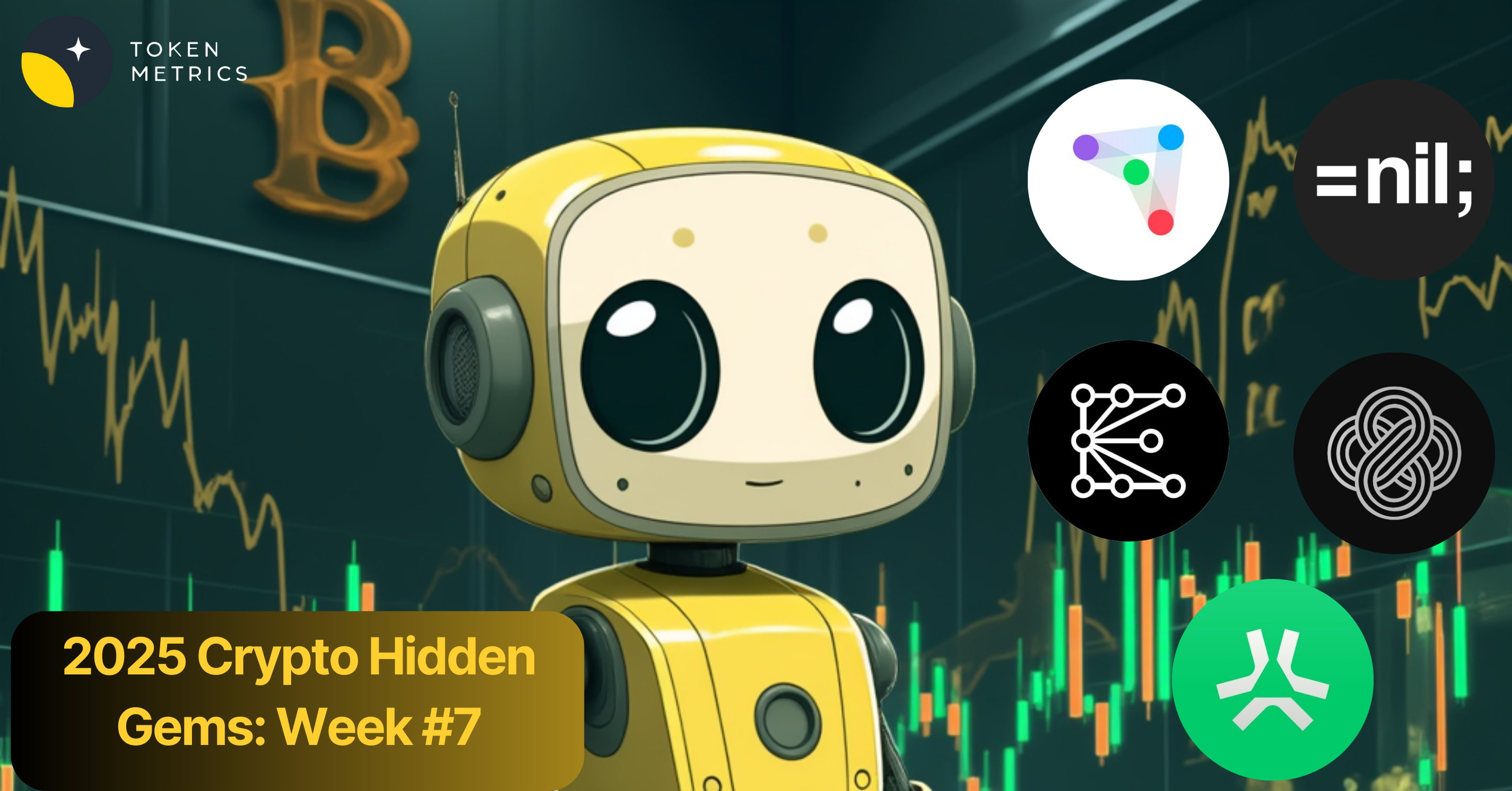We scored many projects this week. Here are a few you should know about:
- Autonolas
- Theoriq
- Pin AI
- Drife
- Virtuals Protocol
Please remember that some of these projects still need our code review process. Still, we want to call them out here because they preliminarily caught our eye based on our fundamental analysis process.
Autonolas – 87.2%
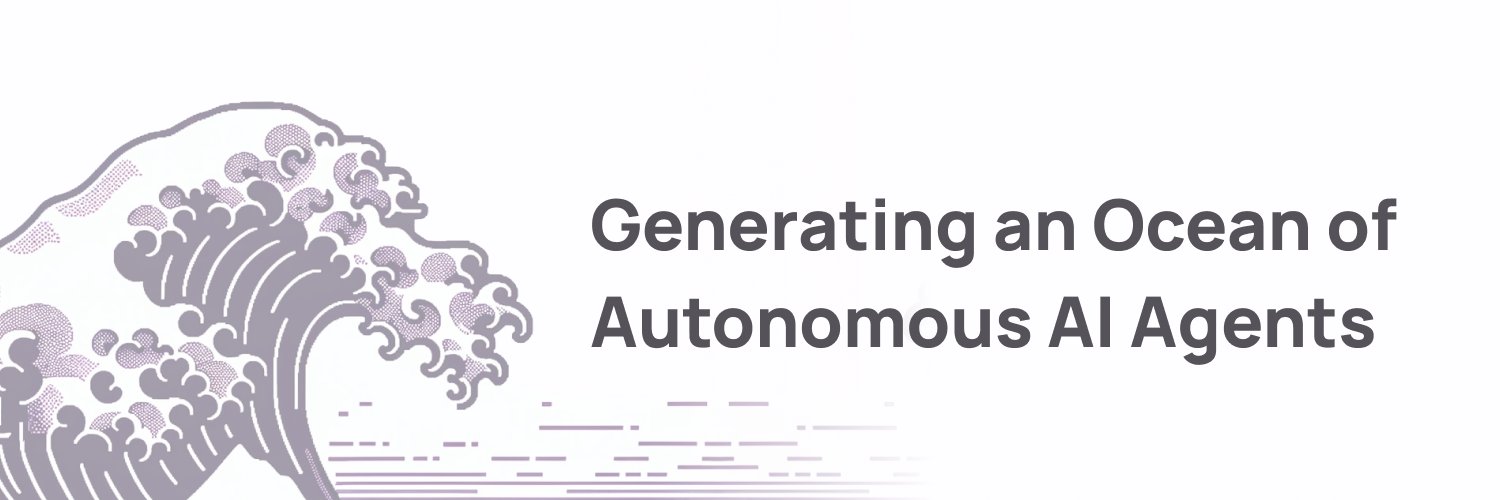 Website | X(Twitter)
Website | X(Twitter)
Sector: AI AGENTS
Status: Active
Autonolas is a platform focused on building autonomous applications and services for developers and DAOs, offering an open-source software stack and an on-chain protocol for secure, incentivized development. At the of its architecture is Open Autonomy, a multi-agent system (MAS) framework where AI agents interact independently, enhancing both on-chain and off-chain functionality. These agent services operate autonomously, enabling full-stack autonomy and continuous operation across complex, multi-stakeholder environments. Autonolas’s MAS framework allows for flexible customization, peer-to-peer communication, and seamless integration with blockchain and smart contracts. The platform’s four core elements include a MAS framework, consensus for trustless agent operations, a crypto-native off-chain service for P2P communication, and an on-chain protocol that securely coordinates agent activities on the blockchain.
Key Features
- Multi-Agent System (MAS) Framework: A foundational structure enabling developers to build and deploy autonomous agents capable of independent decision-making and collaboration in complex, multi-stakeholder scenarios.
- Open Autonomy Architecture: Autonolas’ Open Autonomy forms the base for constructing off-chain agent services, providing continuous operation and enhancing blockchain functionalities through off-chain applications.
- Crypto-Native Off-Chain Services: This establishes a secure, blockchain-integrated P2P communication layer for agents to connect with centralized applications, promoting interoperability.
- On-Chain Protocol for Coordination: Facilitates the secure coordination and management of autonomous applications on public blockchains, ensuring transparency and security in agent operations.
Token
$OLAS is the native cryptocurrency of the Olas network (Autonolas). The token’s utility includes governance, incentives for developers who build and deploy AI agents and applications on the platform, and rewards for users who interact with these applications, encouraging greater participation within the ecosystem. Other token utilities include staking for rewards. $OLAS is currently listed on both centralized exchanges (CEX) and decentralized exchanges (DEX), with a market cap of $108 million as of this writing.
Theoriq – 71.90%
Sector: AI AGENTS
Status: TGE Soon
Theoriq is a decentralized protocol that enables the creation, governance, and monetization of multi agent AI systems through a blockchain powered marketplace. It allows users to build and deploy “Agent Collectives”—dynamic, collaborative groups of AI agents with specialized roles that communicate, transact, and coordinate onchain. With an emphasis on community governance, Theoriq rewards developers, data providers, and users based on their contributions, promoting an inclusive and transparent ecosystem. The platform’s modular, composable architecture supports high performance collectives that can easily integrate data sources, AI models, and computational resources. Theoriq caters to various use cases, from DeFi to GameFi, enabling participants to harness AI for portfolio management, predictive analytics, smart contract auditing, and more. Through no code tools, developers and end users alike can create, interact, and earn via an open, collaborative AI marketplace.
Key Features
- Autonomous AI Agent Collectives: This features a dynamic group of AI agents which autonomously collaborate onchain, perform tasks, mak decisions, and securely exchange information within specialized collectives.
- No-Code AI Builder: Theoriq allows users to create powerful AI agents through natural language prompts, and share them with millions in Theoriq’s marketplace, Infinity Hub, complete with metrics and model cards.
- Proof of Contribution & Collaboration: Each agent’s actions are cryptographically recorded onchain, creating a transparent Proof of Contribution, while collaboration within collectives forms a secure Proof of Collaboration.
- Marketplace: Theoriq is a decentralized marketplace where developers can share, monetize, and analyze agent performance, connecting users with AI solutions across multiple sectors.
- Community Governed System: Decisions and permissions are managed through decentralized governance, ensuring transparency, inclusivity, and fair rewards for community contributors.
Investors
Theoriq raised $6.2M in its seed round which was closed in May 2024. The round was lead by Hack VC and other investors included Foresight Ventures, HTX Ventures, Figment Capital, IOSG Ventures, Hashkey Capital, SNZ Holdings and others.
Token
The Theoriq token is a multi-functional asset within the ecosystem, acting as an incentive alignment tool, security assurance, and governance facilitator. Through staking, users and Agent operators signal the quality and trustworthiness of Agents, promoting network security and reliability. Token holders can also participate in protocol governance decisions, influencing upgrades and optimization strategies. Additionally, the token serves as the primary medium for ecosystem transactions, covering network fees, developer compensation, and rewards for valuable contributions. Token is not publicly traded yet.
PIN AI – 71.90%
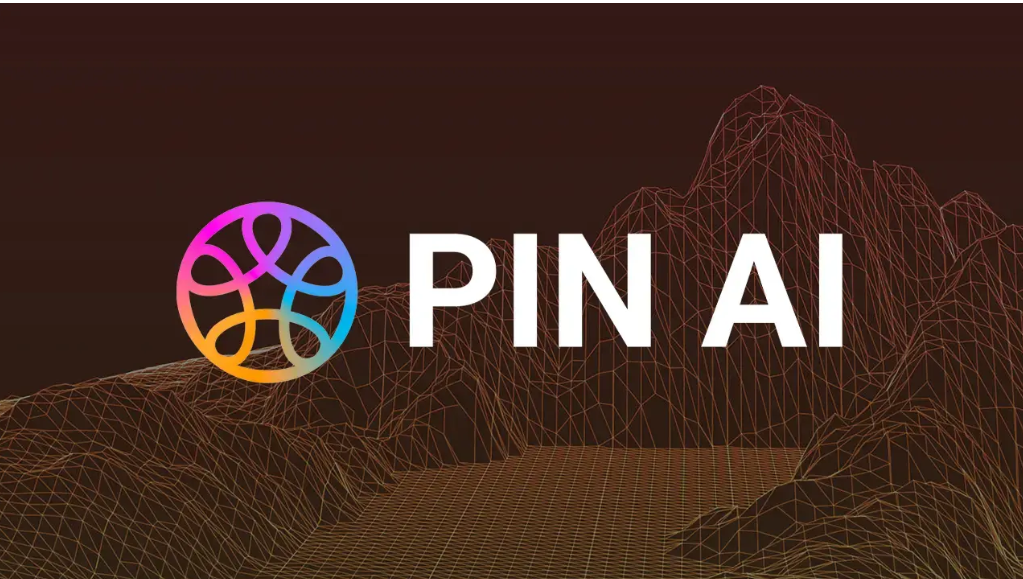 Website | X(Twitter)
Website | X(Twitter)
Sector: AI AGENTS
Status: Early Access
PIN AI is a platform designed to create a personal, private, and powerful AI assistant for every user. Built on open-source AI and blockchain technology, PIN AI gives users ownership of their personal data and full control over their AI interactions. This means your AI assistant can handle real-world tasks, like helping you shop, plan trips, or manage finances, all while keeping your information safe and secure.
The platform is built around three key elements: Personal Data, Personal AI, and External AIs. Your Personal AI lives on your device, understanding your preferences and history while protecting your privacy. When it needs additional support, it connects securely with other AIs to fulfill complex requests, like booking travel, without ever revealing your private data.
PIN AI’s use of encrypted storage ensures that your personal data is always under your control, and interactions with other AI services happen transparently, thanks to blockchain verification. With ongoing improvements in AI personalization, PIN AI aims to become a truly customized assistant that adapts to you over time—providing secure, meaningful, and useful assistance in everyday life.
Key Features
- Privacy-First Design: Built with privacy as a top priority, PIN AI ensures that user data remains encrypted and under the user’s control. Sensitive data is stored securely, with only essential information shared with External AIs as needed.
- Hybrid AI Architecture: Combining on-device and cloud processing, PIN AI balances privacy and performance. Sensitive data stays on the user’s device, while complex tasks leverage the cloud for added power.
- Data Ownership: Users own their personal data and can choose when and how it is used, facilitating a trust-minimized relationship with their AI.
- Open AI Market: PIN AI opens a marketplace for third-party AI services, enabling developers to create and offer useful AI tools on a permissionless basis.
Investors
Pin AI closed its $10M pre-seed round in September 2024. Prominent VC investors included CSX a16zcrypto, Hack VC, Anagram, Blockchain Builders Fund and Foresight Ventures.
Drife – 70.48 %
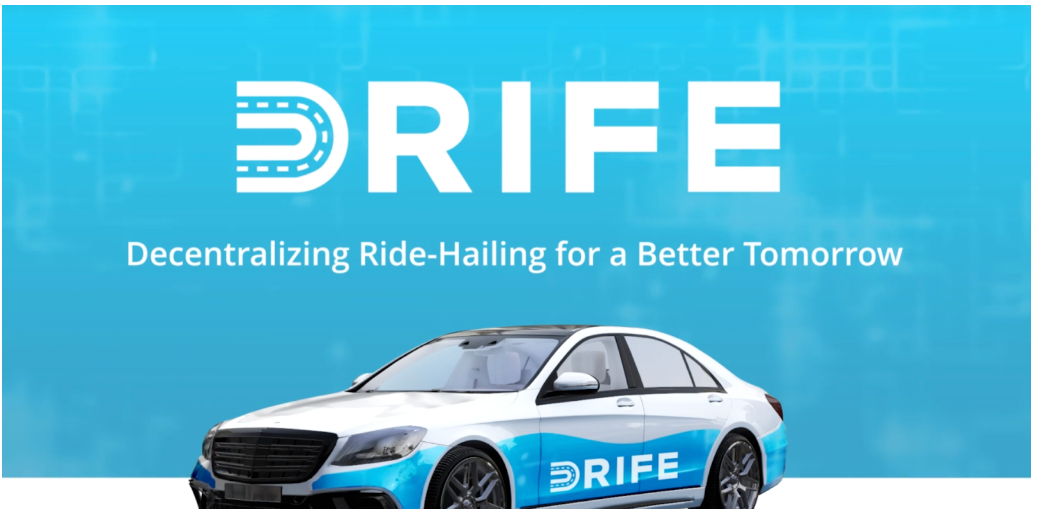 Website | X(Twitter)
Website | X(Twitter)
Sector: DEPIN/SHARE TO EARN
Status: Active But Token Is Not Live
DRIFE is a decentralized ride-hailing platform that uses Web3 and blockchain technology to give drivers and passengers more control over their ride-sharing experience. Built on a peer-to-peer network, DRIFE eliminates intermediaries, offering a “zero-commission” policy that allows drivers to retain more earnings while passengers benefit from competitive pricing. Transparency and security are emphasized through smart contracts, which automate transactions and enable dynamic pricing. Passengers can set fare preferences and select drivers based on personal choices, fostering a fairer, user-driven approach to ride-hailing. DRIFE’s community-owned model empowers users to participate in platform governance, setting it apart from traditional, centralized ride-hailing services.
Key Features
- Zero-Commission Model: DRIFE features a unique “zero-commission” policy. This ensures drivers keep their full earnings, creating a fair economic model within the ride-hailing industry.
- Smart Contract Automation: Transactions are secured through blockchain-based smart contracts, which enhance transparency, prevent disputes, and support flexible, dynamic pricing.
- User-Controlled Pricing and Preferences: Riders can set fare preferences, while drivers can accept rides based on rate preferences, creating a transparent and personalized booking experience.
- Community Governance: DRIFE is community-owned and governed, allowing users to participate in decision-making processes, fostering a more equitable, user-driven platform.
Token
The DRF token is the core currency on the DRIFE platform, facilitating secure, transparent transactions between drivers and riders in a decentralized ecosystem. It powers DRIFE’s incentivized model, rewarding both drivers and riders for active participation, while also enabling decentralized governance by giving stakeholders a say in platform policies. Minted on the SUI blockchain, the DRF token has a fixed supply of 1 billion, supporting a sustainable economy and empowering a community-driven ride-hailing network.
Virtuals Protocol – 69.52%

Sector: AI AGENTS
Status: Active
Virtuals Protocol is a platform that enables co-ownership of advanced AI agents used across gaming and digital applications. These AI agents are equipped with learning and decision-making capabilities, allowing them to perform tasks and interact in various environments, including secure on-chain management. Through tokenization, users can co-own these agents, participate in community governance, and earn revenue from their activities. Each agent is powered by a Cognitive Core, a specialized AI engine that adapts and learns over time.
Gaming and entertainment are Virtuals Protocol’s initial focus, where AI agents create endless, unique content that heightens user engagement. As they adapt to individual preferences, these agents build more personalized, meaningful connections with users, increasing enjoyment and time spent on the platform. By integrating blockchain, Virtual Protocol offers a fair, decentralized approach to AI ownership, enabling participants from anywhere in the world to have a stake.
Key Features
- Co-owned AI Agents: Tokenized agents are co-owned and generate revenue, with participants able to govern and earn from the agents.
- Cognitive Core: Each agent is powered by a Large Language Model (LLM), driving their decision-making and personality. This core handles learning, planning, and real-time interactions.
- Long-Term Memory: This subsystem retains contextual information for use in future tasks, ensuring agents learn and adapt over time.
- Architecture: The Agent Prompting Interface connects external apps to Virtual Agents, while the Stateful AI Runner (SAR) hosts multimodal agents, running models like text-to-speech and gesture recognition.
Investors
Virtuals Protocol is backed by DeFiance Capital, Merit Circle, Longhash Ventures, Master Ventures and others.
Token
The $VIRTUAL token is essential to the Virtuals Protocol platform, powering all transactions and interactions within the AI agent ecosystem. Utility includes:
- Base Currency for Agent Tokens: Every AI agent’s value is paired with $VIRTUAL in its liquidity pool, making it the base token for trading all agents on the platform. When new agents are created, $VIRTUAL tokens are added to these pools, gradually reducing the token’s supply and helping to support its value.
- Transaction Currency: To buy or interact with agent tokens, users first swap their USDC (or other currency) into $VIRTUAL. This setup generates constant demand for $VIRTUAL, similar to how other blockchains use tokens like ETH or SOL as base currencies.
- Payments for Agent Services: When users make requests to AI agents, payments are made in $VIRTUAL tokens, directly from the user’s wallet to the agent’s wallet. This onchain setup allows users to easily pay for agent services and ensures transparent revenue flows to the agent owners.
$VIRTUAL is publicly traded and currently have a marketcap of 393mn as cited by Coingecko.

